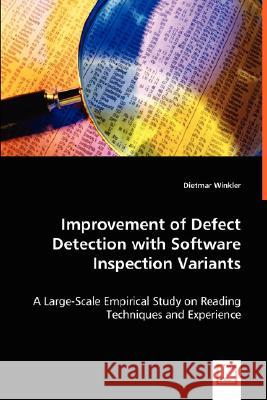Improvement of Defect Detection with Software Inspection Variants » książka
Improvement of Defect Detection with Software Inspection Variants
ISBN-13: 9783836470131 / Angielski / Miękka / 2008 / 152 str.
High-quality software products, customer satisfaction, and project completion within time and cost constraints are success-critical factors in software development practice. Defects can have a major impact on project success. Thus, a major goal is the reduction of defects as early as possible to reduce rework effort and cost. Software inspection is a well-known quality assurance technique to identify defects in early phases of software development, e.g., during requirements elicitation and design specification. Systematic reading techniques, based on checklists and scenarios, support inspectors in finding defects efficiently. Project and Quality Managers have to decide on the assignment of engineers and the application of inspection variants. This book focuses on the empirical evaluation of software inspection and four different reading technique variants regarding (a) individual inspector qualification, (b) temporal behaviour of defect detection, and (c) acceptance of the inspection variants with respect to defect detection performance. The results can support project- and quality managers to implement software inspection within software development processes.











